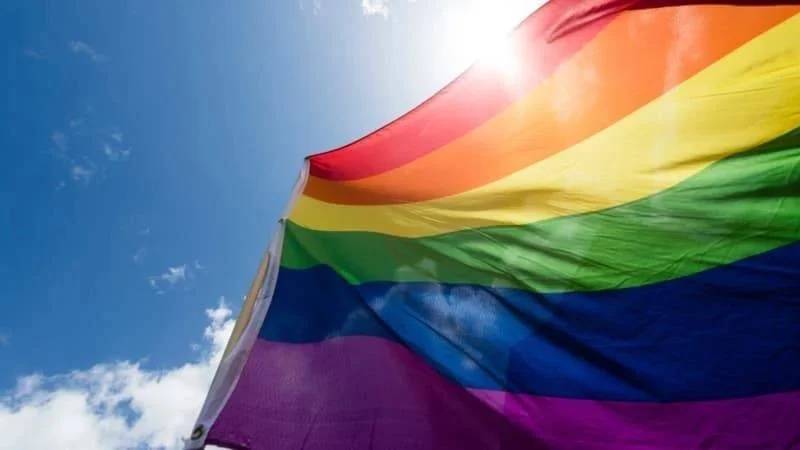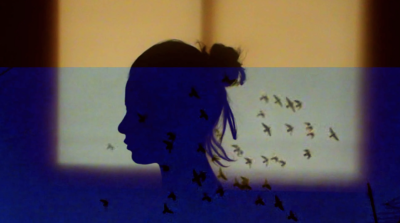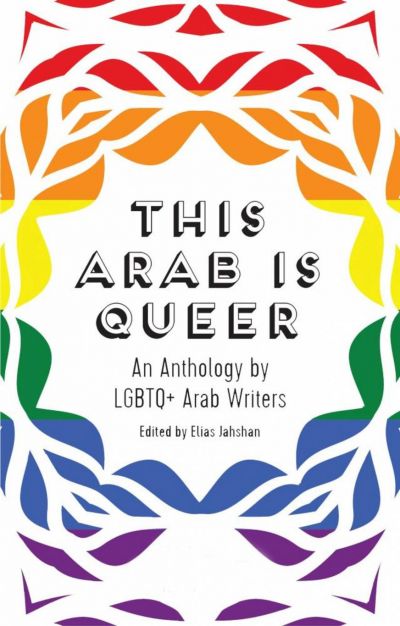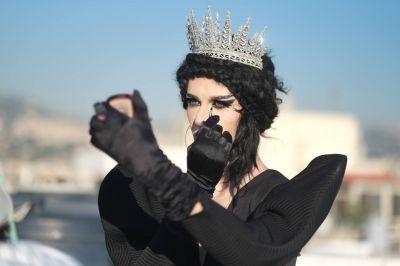
According to an in-depth study released last week by the non-profit organization Legal Action Worldwide, LGBTQI+ individuals in Lebanon remain one of the most marginalized and excluded groups in society. (Credit: AFP)
“It’s so hilarious to me when people from abroad ask me: 'Come on, it can’t be that bad? Isn’t Lebanon the freest country in the Middle East?'” Razane* says with a wry chuckle.
“This idea of Lebanon being a beacon of freedom has only added to the frustration for many of us,” she adds. “Just because some foreigners come here and have some cute experiences on a dating app or on a dancefloor in a dark club one night, doesn’t mean that it’s not a nightmare for those of us who can’t leave and are forced to live double, or at least muted, lives.”
What stings the most, she tells L’Orient Today, is that, with the multitude of continuously exacerbating crises enveloping the country, the main reason she wants to leave the only home she’s ever known isn’t the economic crisis or the many daily struggles that “drain your energy before you’ve even had your breakfast,” or even the fact that she doesn’t see any fundamental changes happening politically — instead, her main motivation to find a way out is her inability to be fully herself, as a queer person.
According to an in-depth study released last week by the non-profit organization Legal Action Worldwide (LAW), LGBTQI+ individuals in Lebanon remain one of the most marginalized and excluded groups in society. The study shows that members of this community are regularly subjected to “systemic discrimination, stigma, and abuse at home and across public settings, ranging from housing, healthcare and employment, to education, hospitality, and shops.”
LAW’s research reveals an “alarming and shocking picture” of lives that are virtually erased by constant discrimination and abuse at home and in public settings as LGBTQI+ individuals are “deprived from their most basic rights,” which include the right to be treated with dignity, humanity, and respect.
With the myriad of pressing issues facing the country, especially in the realm of unlawfulness, what made LAW decide to undertake such an in-depth study of the LGBTQI+ community at this point in time?
“This comes in light of recent developments in the country,” says Fatima Shehadeh, LAW Lebanon’s program manager, “starting with the minister of interior’s decision, which was issued this summer, to prevent any celebrations in the Pride Month and Legal Agenda and Helem’s complaint to the State Council against that decision.”
Strong anti-LGBTQI+ measures have been taken before, such as the banning of the Grindr dating app in 2017 and is still difficult to access without a VPN, and the more recent case of Interior Minister Bassam Mawlawi issuing a statement on June 24 that instructed security forces to crack down on all gatherings that “promote homosexuality” — effectively giving them carte blanche to arrest any congregations of LGBTQI+ individuals.
Mawlawi’s reasoning for doing so ostracized the community, claiming at the time that it is incompatible with “our” society: “Freedom of expression cannot be invoked in this case, since it is a violation of the habits and traditions of our society, contrary to the principles of monotheistic religions.”
“Additionally,” Shehadeh says, “the reactions taken from allies defending and advocating for the LGBTQI+ communities’ rights and those from the opposition conducting violent actions to intimidate LGBTQI+ individuals such as Jnoud al-Rab [Soldiers of God] movement, were all reasons to thoroughly investigate the many issues facing this community.”
Jnoud al-Rab is an extremist Christian group whose members are notorious for their threats and actions against the community, most notably towards Mashrou’ Leila, whose lead singer in an interview said he faced “thousands” of death threats online.
Meanwhile, the report highlights the Beirut port explosion’s impact on the LGBTQI+ community. The most severely affected areas by the explosion — particularly the neighborhoods of Mar Mikhael, Gemmayzeh and Geitawi — were known for their reputation as relatively “queer-friendly neighborhoods,” offering safe spaces in Beirut. Similar inclusive spaces elsewhere in Lebanon are now hard to find, the report says.
“Things used to be different. Difficult, yes, but there was more of a sense of community. It was more of us against the rest, and by that, I mean people who didn’t approve of us and our lifestyle, whatever that means,” Razane says.
“However, so many of us have left, not only people belonging to the queer community but also those who support the community or are people who don’t even make the distinction. Those with, say, shared values. And while I’m grateful for anyone who’s still here and makes things even slightly more tolerable, it’s getting lonelier by the day.”
Key findings of the LAW report point to discrimination and abuse at home and in their day-to-day lives; transgender people and LGBTQI+ refugees are at heightened risk of discrimination and abuse; LGBTQI+ individuals make themselves “invisible” and suffer high levels of mental health issues, and LGBTQI+ individuals face multiple barriers to seeking help and legal support.
At the Lebanon chapter of LAW, which has been operational since 2020, the focus lies mostly on combating the first three issues by providing the fourth. In other words, says Shehadeh, “We focus on outreach, both door to door and through social media, providing legal aid through local partners like Helem, MOSAIC, SIDC, etc.”
Most importantly, she adds, “we make sure to be clear in what kind of help we can provide, when anyone reaches out to our offices or via our hotline. All our lawyers and paralegals are well trained in gender sensitive topics, sexual orientation, gender identity, how to address the individuals, etc.,” emphasizing that these details matter when dealing with marginalized individuals, to put them at ease and earn their trust.
Despite the fact that Lebanon is a party to a long list of international treaties that supposedly safeguard human rights, the report states that “Lebanon’s systemic failure to meet its obligations under international human rights law — including in the context of LGBTQI+ rights — is well-acknowledged and evidenced.”
However, a case study included in the report illustrates that there is hope that things might change for the better, even if it’s just baby steps for now.
In March 2022, LAW successfully won a case of discrimination against a Lebanese 29-year-old male who was previously enlisted in the Lebanese Army and charged under Article 534 after another male military officer confessed to having a sexual relationship with him during service.
After a search warrant led to finding incriminating evidence on the client’s phone, he confessed and based on precedents under Article 534 and international human rights law provisions, a military judge sentenced him to a month of imprisonment. Following LAW’s appeal to the Military Court, the prison sentence was annulled and the defendant was issued a fine of LL300,000 (then worth $195). As the arbitrary law specifies "sexual acts against nature," the military court judge had made the case that same-sex sexual acts are deemed unnatural.
Although a few focus group discussion participants felt that the level of social acceptance towards LGBTQI+ individuals has positively shifted over the past few years, the overall findings of the LAW research show that “these optimistic perceptions do not reflect the widespread and collective reflection.”
Adam*, a young Palestinian man from Syria with pensive eyes who fled to Lebanon during the Syrian war, now bitterly jokes that during the years he lived in Lebanon, he felt like a “quadruple threat, but in a bad way.” He says that his sexual orientation was the least of his worries, since he was already seen as “less than human” for being Palestinian and Syrian.
“Although I’d heard rumours of this attitude against my people, I was shocked to find out how pervasive this hate against us is in Lebanese society,” he says, a lingering incredulity still present in his voice. “I mean, we are all sons and daughters of [the Levant], we eat the same food, we speak the same language. We even look the same!”
Adam managed to flee to a European country, where he now says he lives an “absurdly normal” life.
“Sometimes, I wake up and I forget for a second where I am, and a wave of anxiety hits me.” He recently started dating a man for the first time, which he says still feels surreal.
“I spent so much time erasing that part of me, my sexuality and my desires. Any kind of intimacy, really. It was a very, very lonely life.”
The results of the study are quite shocking, even when considering the overwhelmingly patriarchal and traditional nature of Lebanese society: Over half of those interviewed said that the discovery of their true identity led to being thrown out of the house, or their family ceasing to talk to or see them. The study points to Lebanon’s “geographically small and close-knit society, which limits the scope for anonymity and underscores the need to conform so as not to shame the family and/or compromise their reputation.”
Another finding echoes a 2019 Human Rights Watch report on discrimination and abuse against trans women in Lebanon, which found that “a staggering 38 out of 50 interviewed trans women reported experiencing extreme violence by a male relative for their gender expression, including being locked in a room for extended periods, being denied food and water, being burnt, beaten, stabbed, raped, and attacked at gunpoint.”
Shehadeh recalls one of the worst cases brought to her attention, which occurred after the Mawlawi’s decision, when a trans woman was physically attacked in the middle of the street and was subsequently severely beaten by what she calls “an extremist group.”
Not only does this kind of domestic abuse often push LGBTQI+ people out of their homes and communities, it tends to kickstart a cycle of oppression, discrimination and social exclusion.
Additionally, abuse at home is often done in private, and the fear of repercussions in the wider community often leads victims to stay quiet and endure harm without emotional or physical support.
‘‘It is surprising how much I am working on cases where family members are the perpetrators. There is still a lot of conservative people in Lebanon. A lot of my patients are being abused at home, even by their siblings,” one respondent in the study said.
‘‘I know someone who is gay, his parents forced him to marry his female cousin to stop being gay,” another said.
The report further found that discrimination of LGBTQI+ individuals in public settings is “widespread and common,” with the lack of employment opportunities and discrimination at work having been severely worsened by the sinking economy and COVID-19: Almost half (44 percent) of surveyed respondents reported being unemployed, and 45 percent of respondents said they had faced discrimination in the context of employment, emphasizing their difficulties in finding or keeping jobs.
The report stresses that transgender people, refugees and migrants face additional factors of exclusion “due to lack of identification papers that reflect their gender expression, and absence of legal residency which limits their ability to work.”
Jenny*, a effervescently outspoken woman from a South Asian country who freelances as a domestic worker and identifies as queer, says she’s one of the few women in her situation who managed not to end up in an unbearable situation, even though she was, and still is, always fearful of that scenario.
“I’ve been very lucky,” she tells L’Orient Today. “Not only have I been warmly welcomed by the local queer community, I have also been blessed to encounter good people who have allowed me to build a decent, but most of all, independent life for myself. I know too many others who have ended up in a nightmare.”
Legal Action Worldwide Lebanon’s hotline: +961 81 315 001
*Names have been changed due to the sensitivity of the subject


